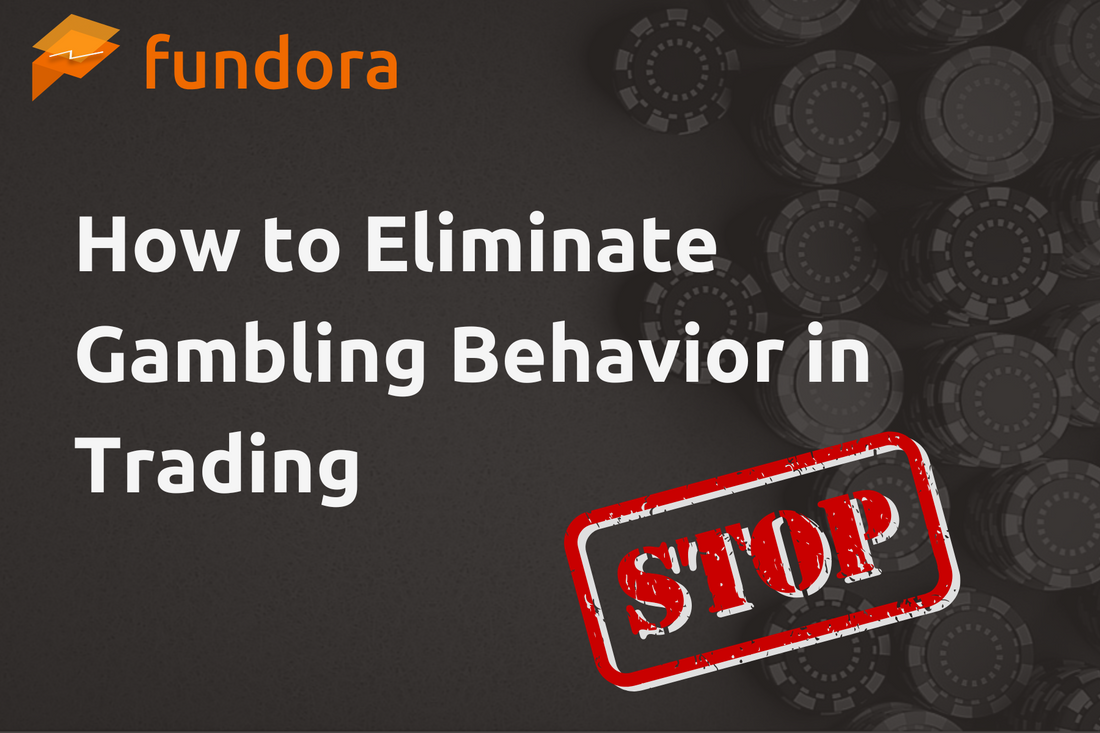
How to Eliminate Gambling Behavior in Trading
Share
Trading is Not Speculation:
Eliminate Gambling Aspects and Move Towards Planned Asset Management
Trading is sometimes described as being "close to gambling." However, that is only the case when it's done without sufficient knowledge or planning.
Fundamentally, trading is a skill to "quantify and manage risk," just like investing.
Especially what prop firms evaluate is consistent strategy, calm judgment, and sound risk management, never gambling-like trading.
In this article, we'll explain the difference between gambling-like trading and planned investing, measures to avoid gambling-like behavior, and important perspectives to keep in mind when aiming to become a professional trader.
Table of Contents
1. What Are the Characteristics of Gambling-Like Trading?
2. The Essence of "Self-Responsibility" and Misconceptions About Trading
3. Three Steps to Improve Gambling-Like Trading
1. What Are the Characteristics of Gambling-Like Trading?
Common to traders who repeatedly incur losses are the following gambling-like behavioral patterns;
- Lack of Planning
Repeatedly entering and exiting positions in an ad-hoc manner without a strategy or rules. - Inadequate Risk Management
Continuing to trade without setting stop losses until losses escalate. - Overconfidence and Bias
Clinging to market predictions and ignoring objective data. - Mindset Aiming for a Quick Fortune
Focusing solely on returns and neglecting risk. - Emotional Judgment
Trying to recoup losses with reckless trades when on a losing streak.
All of these are behavioral patterns that are not sustainable in the long term, lacking "planning" and "reproducibility."
2. The Essence of "Self-Responsibility" and Misconceptions About Trading
The biggest reason why trading is often described as "trading = gambling" is that many people move money without a strategy or knowledge.
That is like participating in poker without knowing the rules, and ultimately, it is the responsibility of the person who incurred the loss.
Gambling-Like Misconceptions Lurking in Trading
- If market predictions are right, you can win → Reality: "Management is more important than prediction"
- Losses can be avoided→ Reality: "Minimizing losses" is the correct approach
- My beliefs move the market→ Reality: "I am merely a part of the market"
It must not be forgotten that prop firms evaluate "consistent behavior and reproducibility of results," not "winning percentage."
3. Three Steps to Improve Gambling-Like Trading

To eliminate gambling elements and transition to planned trading, it's important to make the following steps a habit.
① Acquire Education and Knowledge
Having a foundation for evidence-based decisions, such as technical analysis, fundamental analysis, and risk management, leads to detachment from emotions.
② Develop a Clear Trading Plan
Formalizing entry/exit conditions, time frame, currency pairs, profit/loss ratio, maximum allowable loss, etc., and trading by the same rules each time generates reproducibility.
③ Thoroughly Implement Risk Management
- Capital exposed to risk in a single trade is within 1-2% of the total
- Standardize position sizing
- Decide stop-loss conditions in advance
By combining these, it becomes possible to break away from emotional and intuitive trading .
4. Fundamental Differences Between Investing and Gambling
| Comparison Item | Investment-Style Trading | Gambling-Like Trading |
|---|---|---|
| Judgment Criteria | Based on statistics, analysis, and rules | Dependence on intuition, emotion, and prediction |
| Handling of Losses | Accepted as a planned part | Something to be avoided or ignored |
| Reproducibility | High (execution according to rules is possible) | Low (wins and losses are dependent on luck) |
| Long-Term Results | Possible to accumulate compounded returns | Relies on short-term explosive power |
| How it's Evaluated | Process-oriented (rule adherence, stability) | Result-oriented (single profits) |
From the perspective of handling prop firm capital, the ability to "handle capital like an investor" is considered most important.
In other words, what's being asked is whether you possess calm management ability and professional consciousness, without being swayed by emotions or desires.
5. Summary
Gambling in trading is a "lack of strategy and management," and it's one of the elements that prop firms dislike the most.
Conversely, it's also evidence that a trader with planning, knowledge, and management in place is trading as an "investment," not "speculation."
In exam-based prop firms, emphasis is placed on "whether you can continue to adhere to rules" and "whether you can systematically control losses" rather than "explosive profits in a short period."
The awareness of eliminating gambling aspects can be said to be the first training to stand at the starting line as a professional trader.
Trading is a skill, not luck.
From the moment you gain this awareness, your trading will surely begin to change.
